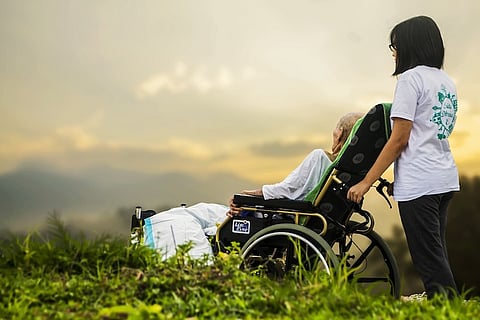

He was a joyful man. He was approaching his seventies, but his spirit showed no sign of aging. He enjoyed his beer and evening snacks. He was extremely sharp and vocal. He was an endless pit of information and knowledge, which he could recollect at the snap of a finger during conversations. He had a loving family, and a great circle of friends. One morning, he had a stroke. The very early signs of stroke could have gone unnoticed, but as soon as they were very evident, he was taken to a hospital. Unfortunately, the hospital was not stroke-ready - it did not have stroke specialists. After several weeks in a coma, he died.
This is a true story, and there are several other similar ones. According to the WHO, strokes are the second leading cause of death and the third leading cause of disability, globally. It is also a leading cause of dementia and depression. And yet, most of us don’t know enough about identifying or preventing it.
Stroke is a ‘brain attack’, like a heart attack. Due to a number of different causes, the arteries leading to your brain get clogged, and your brain does not get the blood it needs. There can be several causes for a stroke, ranging from lifestyle factors to genetic disposition. The incidence of stroke in India is increasing due to our changing lifestyles and lack of early identification of risk factors like blood pressure, diabetes, high cholesterol, smoking, excessive drinking of alcohol which certainly increase stroke risk.
Dr.Sivarajan Thandeeswaran, Senior Consultant - Stroke and Neurovascular Medicine at Kauvery Hospital in Chennai, explains to us the key things you must remember to identify and prevent a stroke.
Identifying a stroke early
The one key fact you need to remember about treating strokes: Time. “Time is everything,” says Dr Sivarajan, and points out, “Millions of brain cells die with every minute of delay in treating the stroke.” Identifying a stroke early by treating it as a medical emergency can substantially improve the chances of survival and post-stroke quality of life.
Also remember: you shouldn’t take the patient to an ill-equipped facility. The hospital has to be stroke-ready. Taking the patient to a specialized stroke unit with access to the best professional care is as important as getting to the hospital as soon as you can.
Do your research and find out which are the hospitals in your city which have a Hyperacute Stroke Unit. “These units bring specialists from different fields, experts in their field, and the latest medical technology in terms of equipment and instruments under one roof and will aim to provide complete treatment for stroke victims, 24 hours a day, thereby reducing mortality rates and avoiding long-term disability,” says Dr Sivarajan who runs a state-of-the-art HASU at Kauvery Hospital.
Now, HOW do you identify a stroke? It’s a simple mnemonic: FAST. You need to look for Facial asymmetry or weakness, weakness in the Arm or legs, Speech disturbance and Time.
Courtesy: World Stroke Organisation
Preventing stroke
World Stroke Organisation says that up to 90% of strokes can be prevented by addressing a small number of risk factors, including hypertension, diet, smoking and exercise. The best way to help prevent a stroke is to eat a healthy diet, exercise regularly, and avoid smoking and drinking too much alcohol.
You can see the full list of recommendations from the UK’s NHS here. Here are a few of them.
- A low-fat, high-fibre diet is, including plenty of fresh fruit and vegetables (5 A Day) and wholegrains.
- At least 150 minutes (2 hours and 30 minutes) of moderate-intensity aerobic activity, such as cycling or fast walking, every week.
- Stop smoking.
- Heavy drinking multiplies the risk of stroke by more than 3 times, so avoid drinking.
- If you have been diagnosed with a condition known to increase your risk of stroke, ensuring the condition is well controlled is also important for helping prevent strokes.
Watch a moving story on how the right treatment of stroke from the right stroke-specialists can save a life:
This article was created by TNM Brand Studio in association with Kauvery Hospital, and not by TNM Editorial.